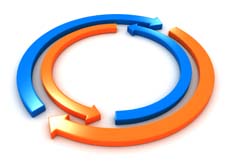 Confused? Our diabetic exchange chart helps you make sense of how much you should eat on the exchange diet. We make it simple and clear to understand.
Confused? Our diabetic exchange chart helps you make sense of how much you should eat on the exchange diet. We make it simple and clear to understand.
As you know, each person will usually have a different exchange diet plan that has been determined by their doctor or nutritionist. Each plan is based on the number of calories the person is to consume during the day.
Your doctor or nutritionist will help you determine the amount of calories you need to consume based on factors including:
- Overall Health
- Weight Loss Goals
- Height
- Weight
While each plan is specific, there are a number of common guidelines that you should understand based on your individual characteristics.
FYI – If you are looking for the exchange value of foods, please go to our diabetic exchange lists page.
Here are some approximate guidelines from the National Institute of Health based on a person’s individual characteristics. The charts first break down the number of calories to be consumed, then further describes the number of servings that corresponds to the given diet. By using the exchange diet food lists, you can simply choose what to eat. Pretty straight forward.
Let’s take a look at which diabetic exchange chart is right for you.
1200 TO 1600 CALORIES
- Small Woman, good exercise habits
- Small or medium sized woman seeking to lose weight
- Medium sized woman, low daily exercise
- Example: 1200 Calorie Diabetic Plan
- Example: 1500 Calorie Diabetic Plan
| Food Item | Servings | Food Item | Servings |
|---|---|---|---|
| Starches | 6 | Dairy | 2 |
| Vegetables | 3 | Meat | 4-6 oz. |
| Fruit | 2 | Fats | 3 |
1600 TO 2000 CALORIES
- Large woman wanting to lose weight
- Small man at a healthy weight
- Medium sized man, low exercise habits
- Medium to large man who wants to lose weight
- Example: 1,600 calorie diabetic plan
- Example: 1,800 calorie diabetic plan
| Food Item | Servings | Food Item | Servings |
|---|---|---|---|
| Starches | 8 | Dairy | 2 |
| Vegetables | 4 | Meat | 4-6 oz. |
| Fruit | 3 | Fats | 4 |
2000 TO 2400 CALORIES
- Medium to large man, heavy exercise habits
- Large man at a healthy weight
- Medium to large woman, heavy exercise habits
| Food Item | Servings | Food Item | Servings |
|---|---|---|---|
| Starches | 10 | Dairy | 2 |
| Vegetables | 4 | Meat | 5-7 oz. |
| Fruit | 4 | Fats | 5 |
Each diabetic exchange chart above should help you get an idea of what the day to day caloric intake and exchange diet values you can expect depending on your individual situation.
Your individual circumstances may vary, but these charts are helpful for understanding the basic framework or logic behind how and why some of these diets are created. They also are helpful to understanding the process or simplicity behind implementing an exchange diet.
SOURCE:
What I Need to Know About Eating and Diabetes, NIH Publication No. 08-5043 (October 2007), NIH.com (accessed August 2012).
By Erich Schultz – Last Reviewed April 2012.
